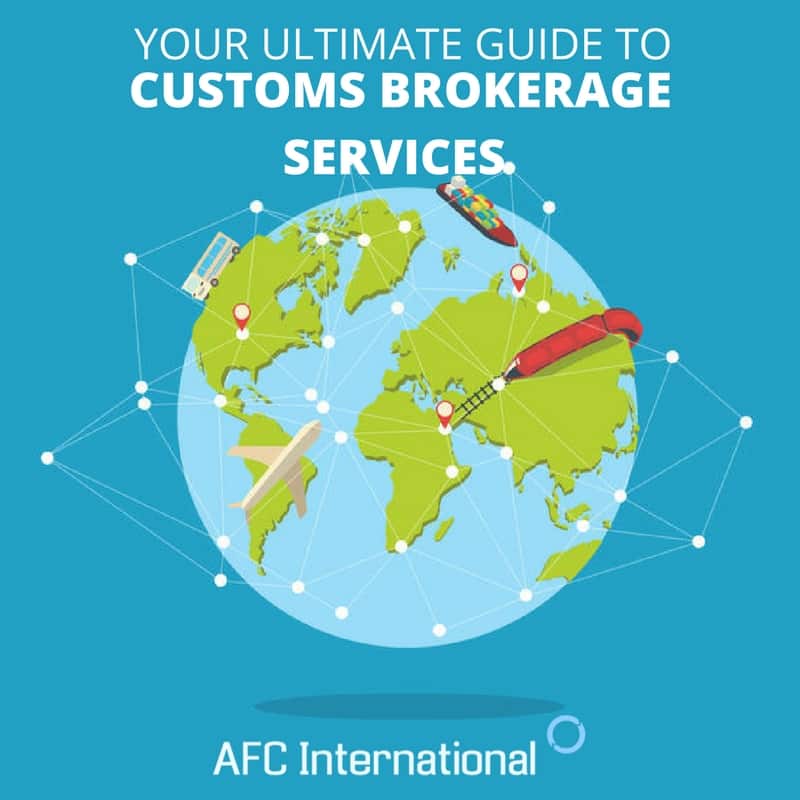Are you an importer whose sole desire is for his or her goods to arrive safely and efficiently? A licensed customs broker can help you achieve those goals. Using these services is the reliable way to ensure your imports arrive without delays. Follow our ultimate guide to customs brokerage services to learn what you need to know to be a successful importer.
When Do You Need a Customs Broker?

A customs broker comes in handy if you are importing from overseas. The process is complicated and requires a lot of documentation. Working hand in hand with an experienced customs broker will help you calculate your profit margin so that you don’t run into a loss once you clear the process.
To ensure that your goods arrive safely from places like Europe and China, you have to enlist the help of a customs broker. These agents will make the process much easier; but it can be daunting because it involves a huge capital outlay. The documentations required are also detailed and overwhelming, and the entire process can be costly if you don’t do it correctly. Follow these tips to help you decide when you need a customs broker.
Essential Import Documents You Must File
The necessary documentation during the importing process is essential for you to import your goods successfully:
• A commercial invoice that clearly details the purchase price, the country of origin and HTS tariff classification.
• A packing list detailing all your imports.
• A bill of lading that lists goods in the form of a receipt.
• An arrival notice from the U.S. agent
Follow our introductory guide to importing into the U.S to learn everything you need to know.
How to Set Up a Customs Broker Account
A customs broker will help you file your documents properly to avoid penalties. You can have peace of mind when you set up a customs broker account and entrust the entire process to your customs broker.
The process is easy and does not require a lot of time. Fill out the general application form and include the following:
- Name of your company and address
- Social security number and Federal Tax ID
- Company type
- State of incorporation
- Accounts payable contact information
Complete a General Account Questionnaire
The general application form is necessary and will help the custom brokerage services company to ascertain if you have any relationship with foreign shippers or sellers. It will tell the customs brokers if:
• You are related to any international shippers or vendors.
• You work as an officer or director in any of their companies.
• You have any controlling interest.
Make an Account Profile

The account profile you create will indicate the following:
• Contact information.
• Billing information.
• The payment terms requested.
• The shipper’s verification, shipment details, billing rate information.
Sign the Power of Attorney
You will need to sign a power of attorney to allow the customs broker to:
• Act as an authorized agent for any export activity.
• Make significant import and export transactions at any point.
• Sign and swear to any documents and perform actions necessary to import goods.
• Make endorsements on bills of lading
• Act as guarantor for any bond required by law.
Setting up a customs broker account will enable your paperwork to be done properly to help you avoid the penalties associated with the incorrect filing of necessary documents. Ensure that you entrust these services to a trained custom broker who understands how to navigate the process to enable your imports to arrive safely.
Understand the Basics of U.S. Customs Duty Rates

Are your goods classified properly? To avoid delays at the border, you must understand the basics of U.S. customs duty rates. Importers are responsible for the correct tariff classification of their imports.
The Harmonized Tariff Schedule (HTS) is an internationally recognized system of names and numbers used to classify your goods. You can review the HTS to find the proper ten-digit HTS code numbers. Use the U.S. International Trade Commission HTS Search tool to help you find the right code.
Looking for some extra cash? Duty drawbacks, which are tax refunds from the government, can be claimed to add extra revenue to your importer business.
Find the Answers to Incoterms Questions You Need to Know
Incoterms are the internationally-accepted definitions and rules of interpretation for most commercial terms. Incoterms are three-letter trade terms used in international-domestic sale of good contracts. They offer rules that outline the transfer of goods responsibilities for buyers and sellers.
Find the answers to incoterms questions you need to know and use our ABCs for a new importer guide to be successful.
Customs Brokerage Services
If you are a first-time importer, it is important to entrust the services of customs brokerage services. These services will allow you receive your merchandise safely and in the most efficient way.
Before hiring customs brokerage services, you have to understand why you need these professionals. Below are some of the customs brokerage services that work for you:
- Electronic transfer.
• Pre-release of shipment
• Remote location filing
• Custom surety bonds
• Duty drawback services.
• Automated broker interface
• Electronic transferOther compliance services include:
• Post entry services
• Compliance support
• Tariff classification review
• Binding ruling
Connect With a Customs Broker
Utilize the help of a customs broker to help your import goods arrive quickly and securely. Learn what you need to know to set up a Customs Broker account today and find out what services customs brokers perform.


Leave a Reply
You must be logged in to post a comment.